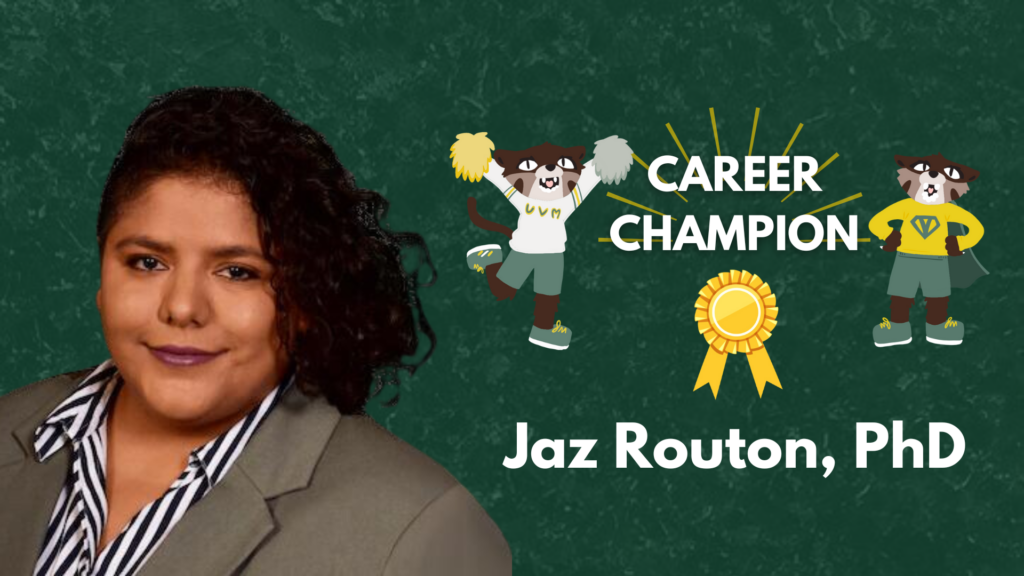Different post-graduate opportunities may require you to submit letters of recommendation – including graduate and professional schools and certain jobs or fellowships.
A strong letter of recommendation is often to result of good preparation by the student. Building meaningful relationships with faculty, advisors, and supervisors will ensure that you have connections with professionals who can speak to your strengths and experiences. Communicating with them early and often about your request for a letter of recommendation will ease the process for you and your letter writer.
Before Asking for a Letter of Recommendation
BUILDING RELATIONSHIPS WITH FACULTY, SUPERVISORS & ADVISORS
The key to a great letter of recommendation is that the writer knows you well. The writer should be someone who has worked closely with you for at least a year’s time. This fact alone shows that the process of receiving a letter of recommendation takes time. If you intend to apply to graduate or professional school, you should be thinking about who could be a great letter writer for you early in your academic career. The next time you take on a TA position, join a research team, or accept a new job on campus, consider who in those spaces could serve as a great recommender and take time to nurture those relationships.
Additional considerations:
1. Stay engaged and avoid “burning bridges” – Don’t slack off as an experience nears its end! Carry on throughout the entire job, internship, research experience, or volunteer project just as enthusiastically as the day you started. You may not recall easing up towards the end, but your recommender most likely will.
2. Keep in touch – Your formal experience with this individual may end a long time before you will need a letter of recommendation, but that doesn’t mean the communication between the two of you has to. Connect with them on LinkedIn, or send them a friendly email checking in every few months. Ask if they want to catch up over coffee or lunch from time to time. A recommender will feel more equipped to write your letter if you kept the relationship going after the work ended, and may be more willing to invest the time it takes to write a great letter on your behalf.
REFLECTING ON THE SKILLS AND EXPERIENCES YOU WISH TO HIGHLIGHT IN YOUR APPLICATION
As you consider who to ask for a letter of recommendation, spend time reflecting on the skills and experiences that are most relevant to the opportunity you are applying to and who can speak to them most effectively. While a faculty member might be able to speak to your writing or research skills, your club advisor might know more about your leadership experiences. Double check requirements from the programs you are applying to about who can write a letter on your behalf; some may require a specific number of letters come from faculty members, depending on the nature of the program.
How to Ask for a Letter
You have done the hard work of building relationships across campus and you have determined who might be best to write on your behalf. Now, it’s time to ask them to write a letter of recommendation.
ASK EARLY
The earlier you ask your recommender to write you a letter, the better. The ideal time to ask is when you are certain that you will be applying for the opportunity that will require the letter. If you are sure, then there is no need to wait until the application opens up to ask.
The next time you connect with your potential recommender, tell them that you are about to start an application and would like to know if they feel as though they could write a strong letter of recommendation on your behalf.
If the answer is yes: Hooray! Thank them for their generosity and tell them you will be in touch with more information regarding the process as soon as you have details on when and how to submit a letter.
If the answer is no: Don’t worry too much, you have plenty of time to ask someone else since you are starting the process early. Thank them for their consideration and move along to the next person on your list.
BE SPECIFIC
When you make the ask, be specific about what it is you are applying for and what you are asking of your recommender.
Provide any details you can about the program you are applying to, why you are interested in applying to this program, and why you believe this person would serve as a great recommender for you. If they accept, you should share a copy of your resume and the list of skills and experiences you want highlighted in the letter with your recommender. The more information they have about the program, your interest, and your experience, the better the letter will be.
SET A DEADLINE
Once your recommender confirms, arrange a deadline to have a completed letter by. You could use the actual deadline for the application, but that leaves very little breathing room. It is a good idea to let your recommender know when the actual deadline is and agree to set a “soft” deadline at least a week prior to the actual deadline.
After your outreach
You have confirmed who your writers are, shared helpful documents like your resume and a list of meaningful experiences you shared with the letter writer, and they have all of the information need to submit the letter on your behalf. However, your responsibilities aren’t over just yet!
FOLLOW UP BEFORE THE DEADLINE
Your recommenders want the absolute best for you, but they are also probably busy people with a lot of competing projects. As a common curtesy (and for your own peace of mind), you should follow up with your recommender at least one week before the deadline that you both agreed to. In your follow up message, politely remind them of the deadline and ask them if they have any last-minute questions about the process. You can also ask that they send you an email to confirm they submitted your letter, but know that it is not appropriate to ask to see a copy of the letter.
SEND A THANK YOU NOTE AND UPDATES
Once you have submitted your application materials and confirmed that the letter of recommendation has been submitted, think about how you are going to appreciate your recommenders. A strong letter of recommendation can take a lot of time to write, so make sure that you at least send a ‘thank you’ card or email to show how much you appreciate what your recommender has done for you.
Lastly, don’t keep your recommender in the dark! The reason why they agreed to write you a letter of recommendation in the first place is because they are just as invested in your success as you are. Share the great news once you receive your offer letter and use it as another opportunity to appreciate what your recommender has done for you. If things didn’t go as planned, let them know as well. It won’t be the happiest outreach you have ever done but, as goes the beauty of networking, you never know what opportunities your recommenders may have for you if your first plan falls through!


